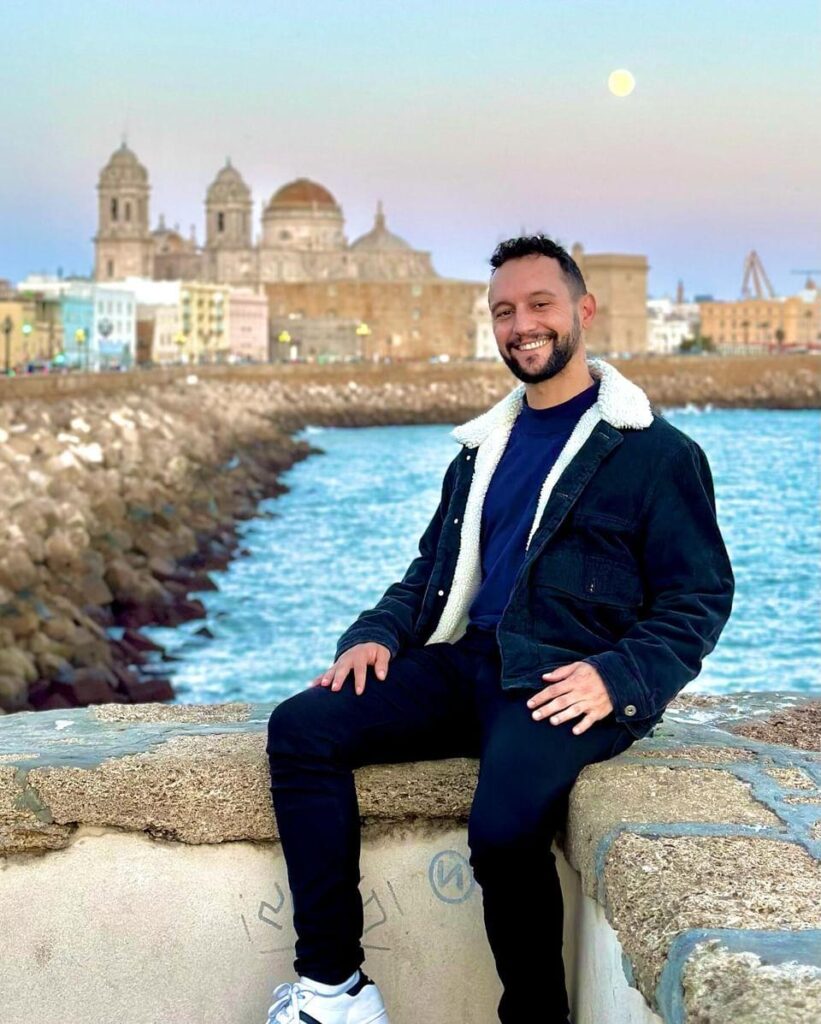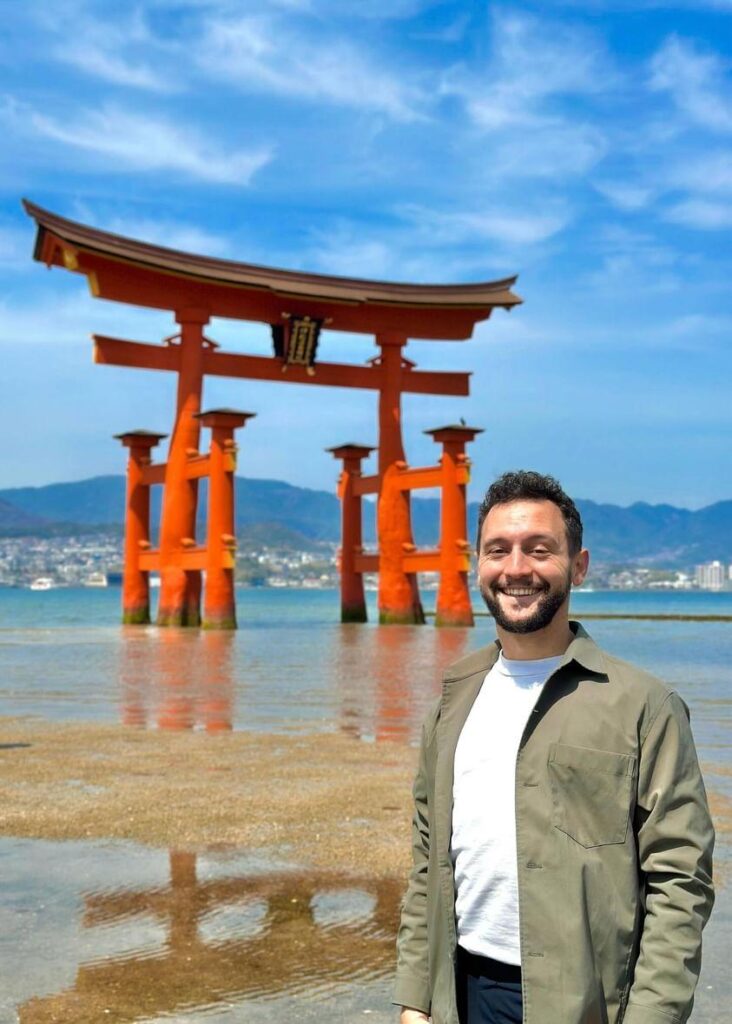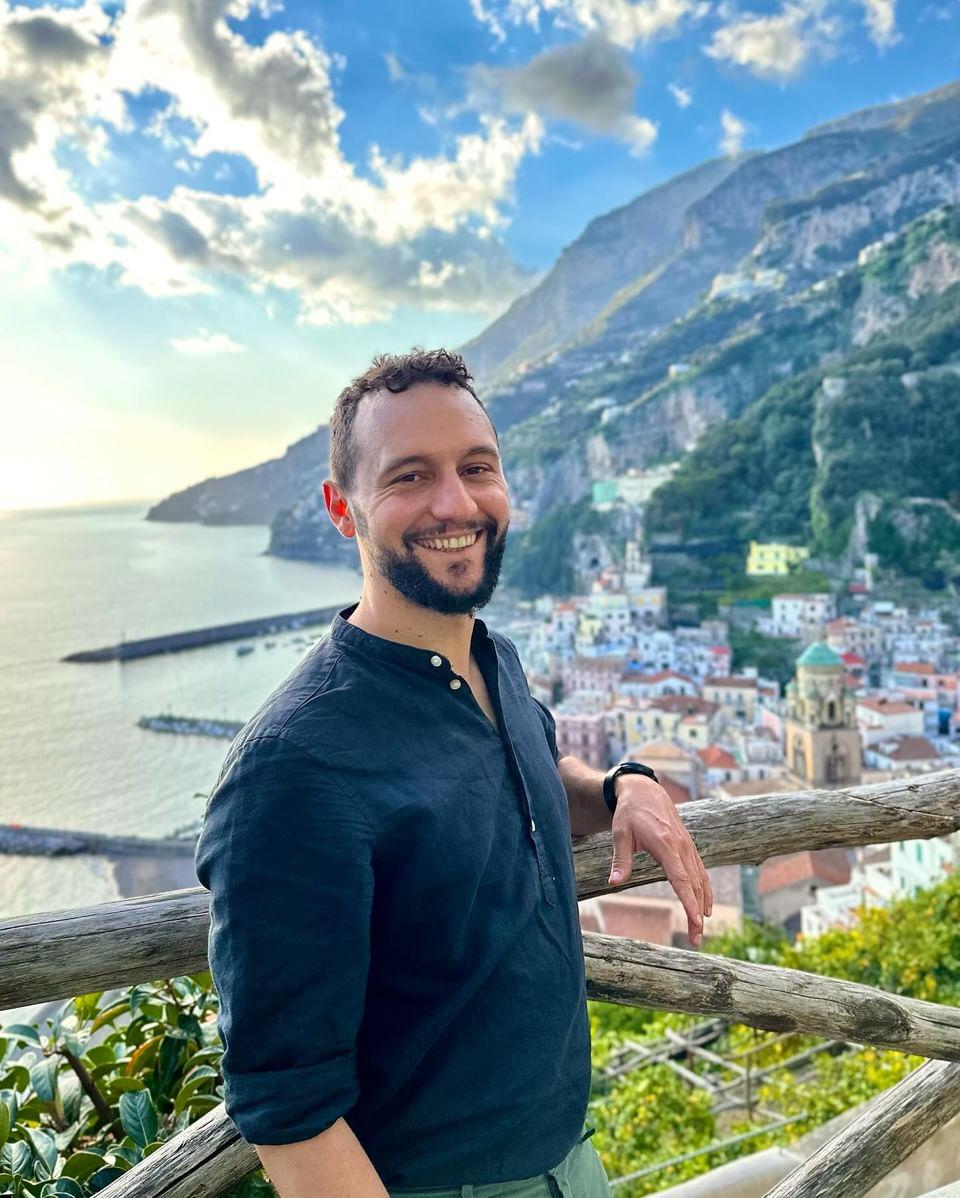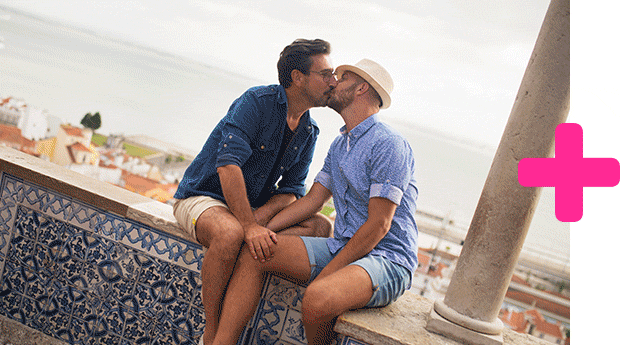We discovered @javierbutnotreally because his posts are frequently among the top #gaytravel posts on Instagram. And so we needed to know more about Javier Santana, the handsome man behind the account.
He’s a Spanish-speaker originally from Gran Canaria, Spain (a place where the number of annual visitors outnumber the locals by four to one). He lives in Berlin, Germany, where he works for an education technology company that gives him a lot of freedom to travel. And perhaps most importantly, he’s obsessed with learning new languages. He mostly chooses his destinations based on which language(s) he’s trying to learn (Japanese) and practise (English, French, German and Italian).

We asked him about the linguistic and cultural quirks he’s discovered in some of the destinations he goes back to again and again.
Speaking German in Berlin, Germany
I speak with my colleagues in German every day. But Berlin is a very multicultural city; this element is practically a part of its DNA. It’s sometimes more common to hear English, French or Spanish on the street than German, so I don’t get to practise my German as much when I’m away from work. But I love that I get the chance to talk to people from many different countries. You’re learning their languages in a very natural way.
Speaking Italian in Palermo, Sicily, Italy
Sicily is such a beautiful place, and it’s also very similar to the Canary Islands, culturally speaking and in the attitudes of its people. Palermo is one of my favourite cities in the world. The food—I’ve found myself in situations where I’m crying while eating, it’s really that good. It has a lot of historic buildings, and all these palaces, which are not necessarily well preserved, but that’s not a bad thing because it contributes to this sense of decadence that makes the city unique. There’s always something going on in the streets of Palermo, even late at night.
People in Sicily in general are super open to foreigners, and they really welcome you into their culture. They embrace my accent—Spanish and Italian are not that far from each other. With Italians, even if you are making mistakes, they’re happy you’re speaking their language. The Sicilian dialect is much more difficult, but when they realize I’m a foreigner they change to standard Italian, though they still have a Sicilian accent. But because of my Spanish accent, even when speaking Italian, sometimes when I’m in the north of Italy, they ask me if I come from Sicily. Which makes sense historically because Sicily belonged to Spain centuries ago.
I found there to be a really big gay community in Sicily—open any dating app and you’ll find lots of guys. The bars can get crowded. But LGBTQ+ people are not visible in the culture, in public life, compared to Spain. It feels underground, even though it’s very big. But once you have access to it, you realize how well articulated it is—they have their own spaces, the parties they go to. But it’s not open to the whole society.
Speaking French in Marseille, France
I love the Mediterranean coast because of the weather but also because Marseille is a very beautiful city. It has a reputation as a dangerous city, a little rough, and though there’s some truth to it, it’s exaggerated in the media. It’s also true that it’s missing a lot in terms of LGBTQ+ spaces. But what I find interesting about France is that, in my opinion, its LGBTQ+ people are more integrated into mainstream life—there’s less of a sense of distinct gay or distinct lesbian personalities.
On one hand, Marseille is a very French city, with everything that entails—the monuments, beautiful buildings similar to what you see in Paris. On the other hand, it’s also a Mediterranean city—it’s super open to the sea. I think that the strong presence of the sea makes people more relaxed, more open minded. There are also a lot of immigrants from North Africa who come to Marseille from French-speaking countries, so it’s multicultural, but at the same time, most people speak French.
I feel like French people are less tolerant with language mistakes than, for example, Italians. They tend to either correct you or immediately change to English because they cannot deal with someone not speaking French well. They have such a high idea of their language, that it’s a great cultural achievement. Even among friends, they are strict about speaking “proper French.”
One of my challenges is not making people feel they have to change to English to talk to me. In the gay community especially, all over the world, people who speak English love speaking it, and the moment they see that you’re a foreigner, they want to talk to you in English. English seems to stand for internationalization, for open-mindedness. So I always have to kind of force them to go back to their native language. If you play your card right, though, speaking the language with a foreign accent can be sexy.
Speaking Japanese in Osaka and Tokyo, Japan

As a European in Japan, you have the feeling that you’re on a whole different planet. Everything works according to different rules. A lot of these rules are implicit and you need to figure them out, otherwise you might break social conventions and not even be aware of it. Japanese people are not very confrontational, and they expect you to realize on your own that you’ve made a mistake.
For example, if you have visited Japan, you have probably seen many convenience stores where you can buy food to go, and vending machines on the street where you can buy drinks. My first assumption was that with all of these possibilities for buying things, you can just walk and eat, or walk and drink while you’re on your way. This is not the case. You’re supposed to drink your vending-machine drink next to the machine and eat your food at the store. When you’re walking, you’re not supposed to be eating or drinking anything. Nobody will stop you or tell you, but it’s considered impolite.
Practising Japanese is complicated, not just because the language is very different for me but because, compared to Spaniards and Italians, for example, the people are more reserved and formal. You really have to find a context where it’s socially acceptable to talk with people, maybe at a bar or a meetup. But once you start a conversation, they’re very helpful because they don’t expect a foreigner to be speaking Japanese. They compliment me on my Japanese all the time, even if I’m aware I’m making a lot of mistakes.
You can see the politeness in the language. With European languages, conjugations and tenses can be very complicated, but in Japanese that part is very simple. For every verb you have different registers and different levels of formality. If you want to connect with people, you really have to master the right level of formality that you want to use.
Spotting LGBTQ+ people in Japan is difficult because, in general, there are few public displays of affection. But it’s even more confusing because with all the formality, there are subcultures where people will wear the most amazing costumes in the street and on the metro. In Europe, if you saw someone with those looks, you might think they’re gay, but in Japan they probably are not. You have to seek out gay areas, and there are not so many of them. In Tokyo, there’s Shinjuku, where there are areas where almost every bar is an LGBTQ+ place.
Speaking gay anywhere in the world
Personally, I meet other gay people in the traditional way. I go to whatever gay bars there are in a city and I try to be very extroverted and open minded. Breaking the ice can feel weird, but I just do a basic introduction: “Hi, I’m Javier, I’m travelling solo and I’m here for a few days.” The conversation takes off from there. You can ask about other gay cultural institutions you should know about. I’ve made amazing friends at gay bars wherever I am in the world. I don’t use dating apps a lot when I’m home in Berlin, but when I’m travelling, I think they work very well as a way to meet people.


